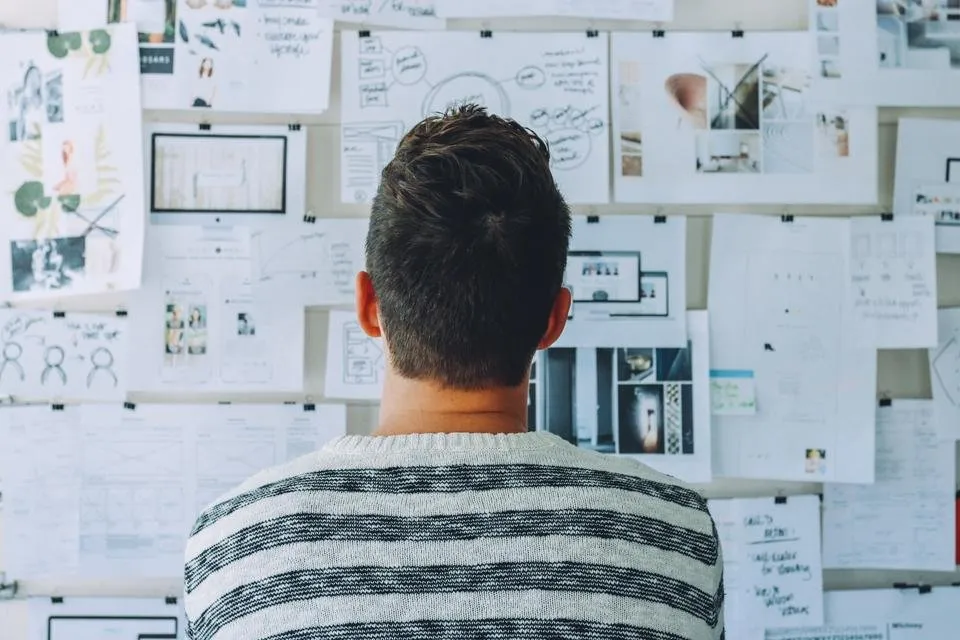
Pexels
Tell me if this scenario seems familiar to you, you get an interest and you want to learn a new skill or you have a goal in mind that you want to achieve and you realize it's going to take daily practice. At first, that's easy because you're on what I call the honeymoon phase.
Honeymoon phase
adj; the brief period at the start of a new relationship, interest or pursuit when everything is awesome all the time.
It's exciting and you can't really think of anything else but that thing. To learn any skill worth learning, to achieve any big goal, you need daily consistent practice over a long period of time and that honeymoon period doesn't always cover it. So, how do you make sure that you stay consistent over the long term and keep putting in the daily practice even when that honeymoon period is over. That's what I'm going to cover in this post and I'm going to be talking about the technique called the 20 second rule which you can use to make sure that that's exactly what you're doing. I learnt about this technique from a book called, "The happiness advantage" by an author named Shawn Anchor and it's based on another technique in psychology that was created by a psychologist named "Mihaly Csikszentmihalyi", the technique is called activation energy. This refers to the effort, willpower or time that it will take to go from wherever you are right now into the actual act of practicing. As the activation energy required for any activity goes up, the will power required to get into it does as well. That's why it's so hard to go out and do things like ride your bike or practice guitar and why it's so easy to play candy crush on your phone.
So, the twenty second rule is all about lowering this activation energy for positive behaviors that you want to do on a consistent basis. Twenty seconds, isn't some scientific precise number here, it's just, it just a marker to illustrate the main point, which is that you need to start modifying your environment to put whatever it is you want to do consistently on the part of least resistance.
Modifying your environment

Pexels
To illustrate this, think about your living room or your dorm room, wherever it is you spend most of your time indoors. How is it set up? If it's setup with a lot of video games, your TV, your remote, then that's the path of least resistance. When you come into the room, you're likely to pick that up and start playing video games. But if you change that a little bit, what if you put away everything and instead you put books around, or you put an instrument right there where you can grab it, then when you come in, you'd be more likely to grab that book and do some reading or grab the instrument and do some practicing.
Now we're going to go more in depth on this in a second, but I do want to know one thing which related to that whole idea of putting the games and remote away which is that there is a flip side to the twenty seconds rule. If there is a behavior that you don't want do so much like playing video games, or procrastinating, going on social media sites, then you can increase that activation energy. One of my personal favorite examples of this principle cones from the creator of the web page xkcd, because he found that he was having trouble going on social media sites and distracting himself when he should have been working, so what he did was he set up a system where he would have to turn his computer off and turn it back on before he can switch any task, so instead if just going from his work to facebook, he'd have to reboot his computer go to facebook, then reboot it again to get back to his work. So he wasn't really blocking himself from going to these distracting websites, but he was setting up process that took so much effort that he just didn't want to do it and if you want to put this principle in action yourself as well you could start rebooting your computer but there also a chrome extension called crackbook which essentially creates a delay before you can go on any distracting website that you set. For example if you wanted to go on facebook, you could but you have to wait 30 seconds for the page to load.
Creating a plan of action

Pexels
What I want to focus on now is the positive side of the twenty second rule, how do you reduce the friction required to getting into whatever it is you want to make consistent daily progress on. I want to talk about the idea here in general, whatever you want to make progress on, whatever goal you have, picture it in your mind, sit down and create a plan for how you can start modifying your environment. Ask yourself, what kind of tools do I need to practice this habit? If you're playing guitar obviously, you need a guitar, if you're doing electric guitar you need, an amplifier and a cord. Ask yourself, how can I make these things accessible to me. Also ask yourself, what kind of maintenance task do I have to do on a regular basis, that doesn't really count as practice but still has to be done nonetheless.
